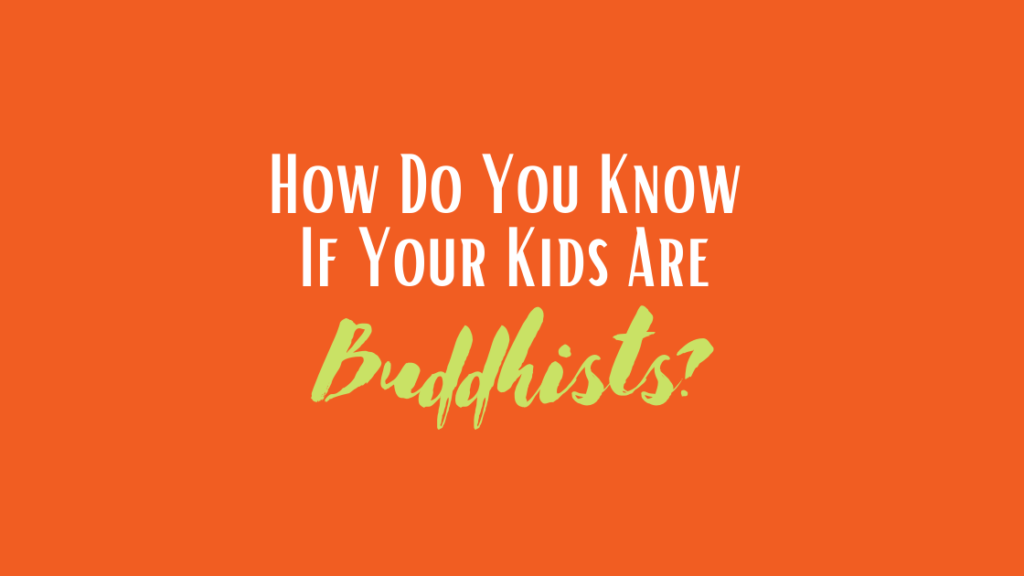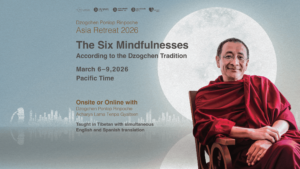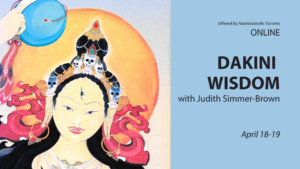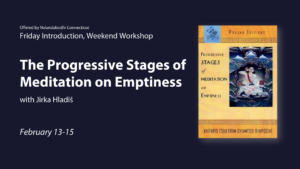My four children were born into Buddhism while I was a student of Chögyam Trungpa. He gave them all Tibetan names. They were blessed by Rinpoche and other great teachers including HH the 16th Karmapa. I assumed their Buddhist destiny was sealed.
Not one of my four children is a Buddhist or practices meditation. But despite their not being official Buddhists, my children are very kind people. They got the spirit of the teachings if not the letter.
Some of our children carry on the practices we passionately expose them to, some are indifferent, and others are embarrassed by our Buddhist ways. I’ve known Buddhist parents who got very distressed about the rejecting attitudes of their non-Buddhist offspring. So far I’ve avoided this by remembering certain teachings I received from Suzuki Roshi, and later on, from Trungpa Rinpoche.
The heart of Suzuki Roshi’s teaching was “beginner’s mind.” With beginner’s mind, you had to constantly let go of fixed ideas of how things are or “should” be. This attitude was especially helpful while raising four children. Of course, I still had to teach them such essentials as “don’t bite your neighbor.” But when they did something that merely challenged my social conditioning, like dying their hair bright red, beginner’s mind came in handy.
Roshi taught us to respect and trust our children’s Buddhanature. He said we should take care not to relate to them as if they needed improvement –– for example, indoctrinating them about how to be “good” Buddhists. Our parenting needed to be based in appreciating and fostering our children’s natural intelligence and curiosity about the world, not on getting them to behave in ways that would make us more comfortable. Roshi taught we must let go of our hopes and fears for our kids –– at times a tall order for me. He taught us to make a great effort not to spoil their natural, flexible, open beginner’s mind.
Roshi also repeatedly reminded us there is a difference between being a Buddhist and calling yourself a Buddhist. He really didn’t care about establishing Buddhism as an institution. He wanted to create a tradition of practitioners who cultivated beginner’s mind regardless of their religion or lack thereof. He often said that many of the best Buddhists were not Buddhists at all. Real Buddhism, he taught, is expressed in every moment of loving kindness, generosity, patience, and joy that arises in a human heart or action.
So, we have to set our children free. Being Buddhists doesn’t give us permission to indoctrinate them that Buddhism is the “best” spiritual tradition! Trungpa Rinpoche once told a group of young parents we should relax and not be so concerned about creating “good” children. He said they bring 80% of their karma with them and that our interactions with them are only 20% of the equation.
Remembering the vastness of being that is flowing through our precious “little ones” helps to ease any parenting anxieties we may have. We can release our tendency to regard our kids as inadequate simply because we perceive them in a temporary state of diminished capacity prior to the blooming of the 80% package they brought with them. Anxious concern for our children only causes us to more tightly contract into the identity of being “good” or “bad” parents, forgetting the vastness of being that we ourselves also carry within us.
My advice for Buddhist parents, then, is built on that of my teachers: don’t insist that your children accept Buddhism, and try to let go of any “us vs. them” ideas about the world as best you can.
Be genuine, be kind, share your knowledge and mistakes, and model a beginner’s mind. Show them the best that Buddhism has to offer: an open, joyful heart and an open, inquisitive mind!

Jack Elias has studied and practiced Buddhism since 1967, first with Zen teacher Suzuki Roshi, then with Buddhist teachers Chögyam Trungpa Rinpoche and Dzogchen Ponlop Rinpoche. A hypnotherapist and NLP trainer since 1988, Jack is co-author of The Outrageous Guide to Being Fully Alive: Defeat Your Inner Trolls and Reclaim Your Sense of Humor and author of Finding True Magic: Transpersonal Hypnosis & Hypnotherapy/NLP. More at jackelias.com.






